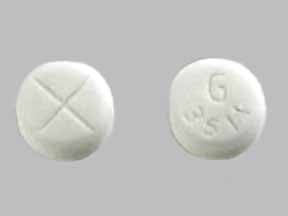
Pyridostigmine Coupons & Savings Card – Discount Prices from $23.19
Generic for: Mestinon
My prescription
Edit
60MG, Pyridostigmine (90 Tablets)
Select pharmacy

CVS
$25.05
COUPON PRICE
Walmart
$23.19
COUPON PRICE
Walgreens
$29.70
COUPON PRICE
Albertsons
$31.75
COUPON PRICEPyridostigmine savings card
Show this card to your pharmacist
Walmart
$23.19
BIN
ID
PCN
GRP
019876
LHCC61CDC7
CHIPPO
LHX
Powered by
More prescriptions for myasthenia gravis
More prescriptions for myasthenia gravis
Price history for Mestinon (brand) & Pyridostigmine (generic)
90 Tablets, 60MG
Average retail price for Mestinon
Average retail price for Pyridostigmine
Average SaveHealth price for Pyridostigmine
Our price history data is based on aggregated prescription data collected from participating pharmacies in America. Our prescription data updates daily to reflect the latest price changes. If you notice a missing data point, it means there wasn't sufficient data available to generate a monetary value for that date.
We analyzed Pyridostigmine prices for (60MG, 90 Tablets) over the last 12 months. The average retail price was $74.89, while the average price using the SaveHealth discount card was $31.11. That's a savings of approximately 58.46% when using our Pyridostigmine coupon.
Compared to the generic version, Mestinon had an average price of $2087.51 over the same time period. With the SaveHealth savings card, Pyridostigmine is 98.51% cheaper on average than Mestinon.
*Retail prices are based on pharmacy claims data, and may not be accurate when we don't have enough claims.
Pyridostigmine dosage forms
Dosage Quantity Price from Per unit 30MG 21 Tablets $139.11 $6.62 30MG 90 Tablets $638.70 $7.10 30MG 210 Tablets $1470.30 $7.00 60MG 90 Tablets $23.19 $0.26 60MG 1 Tablet $2.73 $2.73 60MG 30 Tablets $9.40 $0.31 60MG 100 Tablets $25.49 $0.26
| Dosage | Quantity | Price from | Per unit |
|---|---|---|---|
| 30MG | 21 Tablets | $139.11 | $6.62 |
| 30MG | 90 Tablets | $638.70 | $7.10 |
| 30MG | 210 Tablets | $1470.30 | $7.00 |
| 60MG | 90 Tablets | $23.19 | $0.26 |
| 60MG | 1 Tablet | $2.73 | $2.73 |
| 60MG | 30 Tablets | $9.40 | $0.31 |
| 60MG | 100 Tablets | $25.49 | $0.26 |
Pyridostigmine Warnings
This medication comes with important safety warnings and contraindications that you should be aware of. Please read these carefully and discuss any concerns with your healthcare provider.
Myasthenic Crisis Warning: Excessive use of pyridostigmine (Mestinon) can lead to muscle weakness, which is also a symptom of worsening myasthenia gravis. Distinguishing between taking too much or too little pyridostigmine can be challenging, yet both scenarios can be life-threatening if respiratory muscles become too weak. Be vigilant for signs of severe muscle weakness, which can occur even with prescribed use of pyridostigmine, and seek medical attention promptly.
Use with Caution in Asthma: Muscle weakness, whether due to excessive pyridostigmine or worsening myasthenia gravis, can impair breathing. Therefore, pyridostigmine should be used cautiously in individuals with asthma or other respiratory issues. Inform your healthcare provider about any existing lung or breathing conditions before beginning treatment. Immediate medical care is necessary if breathing difficulties arise while taking this medication.
Contraindications: Pyridostigmine should not be used in individuals with intestinal or urinary blockages, as it poses serious health risks. Consult your healthcare provider if you have these conditions before starting this medication.
Always follow your healthcare provider’s instructions and report any adverse effects or concerns you may encounter during treatment.
Pyridostigmine Side Effects
Common side effects:
- Nausea
- Vomiting
- Diarrhea
- Abdominal cramps
- Increased saliva
- Sweating
- Runny nose
- Smaller pupil size
- Increased urination
- More frequent bowel movements
Less common but important to monitor:
- Muscle cramps
- Twitching
- Weakness
- Slow heartbeat
- Dizziness
Serious side effects:
- Allergic reaction (rash, itching or swelling, particularly of the face, tongue, or throat, severe dizziness, or difficulty breathing)
- Myasthenic crisis (severe muscle weakness and trouble breathing)
Pyridostigmine Interactions
Pyridostigmine, commonly prescribed for myasthenia gravis, can interact with various medications, potentially altering its effectiveness or increasing side effects. It's essential to be aware of these interactions to manage your treatment safely.
Anticholinergic Medications: Drugs like atropine and Scopolamine can counteract pyridostigmine's effects by slowing down gastrointestinal movement, which may reduce the absorption of pyridostigmine.
Corticosteroids: Medications such as Prednisone and Hydrocortisone may decrease the effectiveness of pyridostigmine. If corticosteroids are necessary, they should be introduced cautiously, and the need for respiratory support should be anticipated.
Muscle Relaxants: Non-depolarizing muscle relaxants like pancuronium and vecuronium may have reduced effectiveness when used with pyridostigmine. Conversely, depolarizing muscle relaxants such as succinylcholine may have prolonged effects, leading to extended muscle relaxation.
Aminoglycoside Antibiotics: Antibiotics like Neomycin, Streptomycin, and kanamycin can enhance neuromuscular blockade, potentially worsening muscle weakness. These should be used cautiously in individuals with myasthenia gravis.
Local and General Anesthetics: Certain anesthetics may interfere with neuromuscular transmission, affecting pyridostigmine's action. Inform your healthcare provider about your pyridostigmine use before undergoing any surgical procedures.
Antiarrhythmic Agents: Medications used to treat irregular heartbeats may interact with pyridostigmine, necessitating careful monitoring.
Alcohol: Consuming alcohol, especially with extended-release forms of pyridostigmine, can disrupt the medication's release mechanism, leading to a rapid release of the drug. This may increase the risk of side effects and reduce the duration of its action.
Methylcellulose: Products containing methylcellulose can inhibit the absorption of pyridostigmine. It's advisable to avoid such products to ensure the medication's effectiveness.
Always consult your healthcare provider before starting or stopping any medications while on pyridostigmine to ensure safe and effective treatment.
